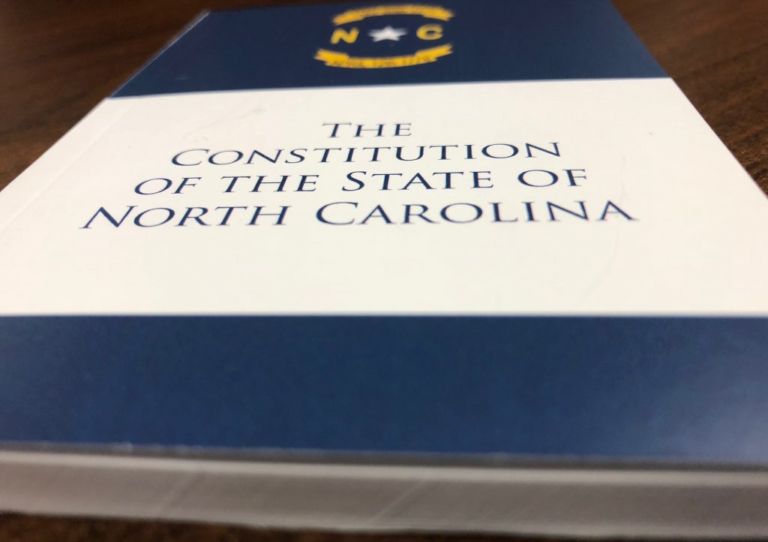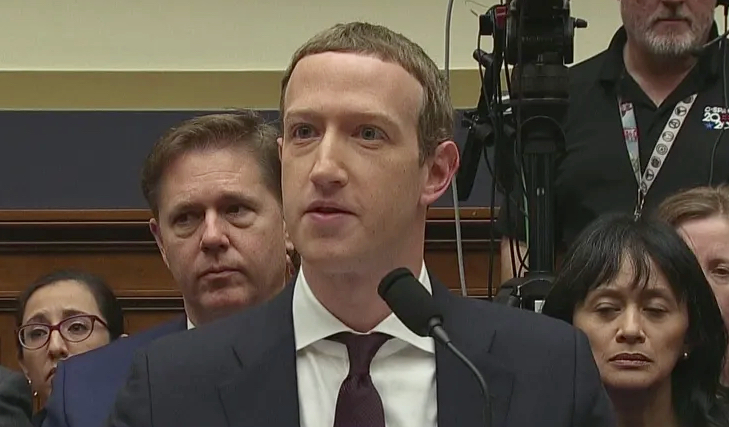- North Carolina’s election reform bill, Senate Bill 747, would prevent “Zuck bucks” from being used to influence elections
- The bill aims to prevent unlawful influencing of voters by tracking who assists in marking ballots
- It would make it illegal to barcode ballots and would reduce electioneering organizations’ ability to chase down absentee ballots
Previously I had discussed the minimal impact of North Carolina’s elections reform bill, Senate Bill 747 (third edition as of this writing), on individual voters. I broke down the limited number of changes that impact voters directly: the changes to mail-in ballots, changes to same-day registration, and added protection for felons who may unknowingly attempt to vote while still serving their sentences. While much of the attention on SB 747 has been on its proposed changes to same-day registration and mail-in ballots, many of the major reforms of the bill have gone unnoticed. Many of the bills’ most impactful changes take aim at electioneering organizations and would likely go unnoticed by voters.
Electioneering organizations consist of party committees, political action committees (PACs), and nonprofit organizations that engage in get-out-the-vote efforts for elections. While not all the changes noted here are solely tied to these types of entities, these types of electioneering organizations would be most impacted by them.
Prohibiting Private Funding in Elections Administration
The Locke Foundation highlighted many problems during the 2020 election. One of the most concerning was the private funding of election administration. This practice is commonly referred to as “Zuck bucks” in reference to Facebook founder Mark Zuckerberg who — along with his wife, Priscilla Chan — infamously funded private grants for county boards of elections through the Center for Tech and Civic Life (CTCL). CTCL contributed over $400 million in the 2020 election, with more than $7.2 million going to 31 counties in North Carolina.
Researching the distribution of CTCL’s funding and comparing it with the election results in 2020 showed evidence that this funding disproportionately benefited Democrats. Other organizations, including the Schwarzenegger Institute, also provided funding to elections boards.
The General Assembly has attempted to ban the private funding of elections in years past, only to see them vetoed by Gov. Roy Cooper.
Prohibiting Bar Coding of Absentee Ballots
Sections 19 and 27 of the elections bill would make it a Class 1 misdemeanor for barcoding absentee ballot request forms and container envelopes by anyone other than the board of elections. Barcoding absentee ballot container envelopes or absentee ballot request forms is a common practice for electioneering organizations to track who has requested an absentee ballot. Nonprofits, PACs, and political parties commonly send voters absentee ballot request forms to fill out and submit to the board of elections. These bar codes allow these organizations to track who submits their request to the board of elections for an absentee ballot. At this point, the organization will do what election workers call “absentee ballot chase” (AB chase).
AB chase, as the name implies, is the process in which electioneering groups target voters who have requested an absentee ballot to get them to submit their absentee ballot. Organizations will typically target the voters they sent the absentee ballot request form to, whom they believe are more supportive of their general cause.
By banning barcoding, the bill would cut down the effectiveness of AB chase for those organizations and ensure greater privacy for those who are voting absentee by mail.
Tracking Who Is Assisting Voters at the Ballot Box
This proposed change would require that any person assisting a voter in marking their ballot sign a log with their name and address recorded by precinct officials. The John Locke Foundation has advocated for this reform in our 2022 Policy Solutions guide. Locke addressed the need for reform after a recent controversy in which a candidate’s husband escorted voters to the ballot box and assisted them in marking their ballot:
An incident in Anson County in the 2020 general election showed how voting assistance, especially during the early voting period, can be abused. John Montgomery, the husband of a Register of Deeds candidate, escorted dozens of voters that he met in the parking lot of an early voting site into the polling place and “assisted” them as they marked their ballots. In at least one instance, Montgomery marked a ballot while the voter stood behind him with his hands in his pocket. Montgomery’s actions became known because campaign volunteers started recording him escorting voters into the early voting site.
While it is not illegal for a candidate’s spouse to assist a voter, the chief precinct judge must determine whether the assistance is appropriate. All voters may be allowed assistance from family members under GS.163-166.8(a)(1). Voters who have a disability or are illiterate may receive assistance from any individual so long as they are not the employer, agent of their employer, or an officer of the voters’ labor union.
While the actions of Mr. Montgomery were questionable, the State Board of Elections thought that he was not in violation of the law. Dr. Andy Jackson, director of Locke’s Civitas Center for Public Integrity, wrote:
Since the report on the 2020 election was published, I have heard via email from the Anson County Board of Elections that the SBE told them that “there was no illegal voter’s assistance done by Mr. John Montgomery in 2020 General Election.” It would be an example of one of the multiple bottlenecks that prevent criminal investigations of alleged election crimes.
Instituting this provision would allow for greater transparency and ensure that those assisting voters are working within the confines of the law.
Changes to Poll Observers
In North Carolina, county parties have the right to designate two election observers to each precinct on election day. Currently, an observer can be relieved after serving no less than four hours at one precinct within the county where they reside. This bill would allow county party chairs to assign an observer an additional shift of up to four hours at any other precinct during that election. This change would not prevent a volunteer from serving these additional four hours at the precinct for which they were already acting as an observer.
It is difficult for county parties to recruit enough volunteers to serve as election observers for every precinct for the entirety of election day. This change would allow some flexibility for volunteers who wish to serve additional time as observers.
Another bill moving through the General Assembly, House Bill 772, would provide additional clarity on the role of election observers.
Contesting Absentee Ballots
Neither electioneering organizations nor political committees have the authority to challenge absentee ballots; this right is held solely by registered voters. These organizations can, however, recruit voters to challenge ballots they suspect as fraudulent. Senate Bill 747 would simply change the requirement that a voter must live in the same precinct as the vote they wish to challenge to a requirement that they live in the same county. It would move the deadline for challenging absentee ballots to 7:30 p.m. on election day, mirroring the deadline by which the board of elections must receive absentee ballots.
Conclusion
While many of these reforms would likely go unnoticed by most voters, they would limit the interference by electioneering organizations and the impact of dark money groups. Provisions in SB 747 would help reduce the influence of electioneering organizations and protect the integrity of our elections from outside influence in our state’s elections.


